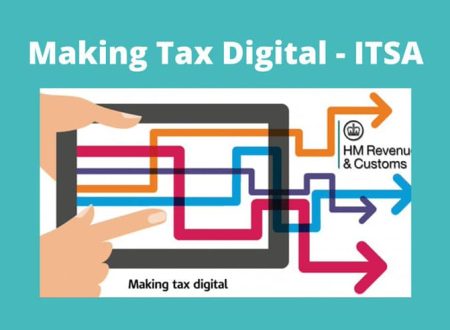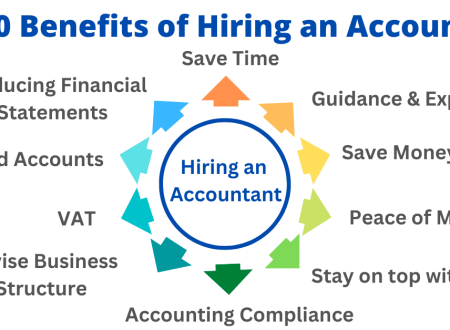When it comes to registering your business, you have a big decision to make. Today, we’re looking at the advantages of being a sole trader and what it means for your venture over the long term.
Self-employment is on the rise, with more and more individuals deciding to go solo and set up their own businesses. As of March 2018, there are 4.8 million individuals registered as self-employed in the UK, accounting for a healthy 15% of the total workforce.
With benefits including flexibility and the freedom of being your own boss, it’s little surprise that so many people are opting to take this route. However, there’s one important decision you need to make: how should you register your business? Here, we look at the advantages of being a sole trader.
What Does Being a Sole Trader Mean?
Being a sole trader, or sole proprietor, is essentially what it sounds like. You’re trading as a single person, meaning that your business — including its assets, any profit it makes, and also any liabilities it accrues — belongs to you. If you’re setting up your own business, whether you’re a freelancer delivering a service to other businesses or you’re selling products from your home to customers, you’ll need to register as self-employed with HM Revenue & Customs (HMRC) as soon as you can.
So, now you know what a sole proprietor is, let’s take a look at some of the pros and cons of establishing a sole trader business.
The Advantages of Being a Sole Trader
Registering as a sole trader isn’t the only option for budding business owners. You can instead register as a limited company. We’ll delve more into this alternative shortly, but it’s important to know that there is a clear distinction between the two, and the one which will best benefit your business will depend on your immediate needs and long-term goals. You may find that the advantages of sole proprietorship are perfect for you and your business, but what exactly are they?
Full Control
The likelihood is you’ve set up your own business — or are in the process of doing so — because you want the freedom to do things exactly how you want to. You’re probably tired of working for someone else and helping them achieve their dream, and instead want to focus on your own. As a sole trader, you’ll have full control of your business, and will be able to run it how you want to without the interference of others.
Ownership of Profit
As a sole trader, all the profits you make belong to you. You won’t have shareholders to pay, or need to split your profit in any way. You may decide to work entirely alone, which will ultimately maximize your potential profit and keep your costs low. However, should you decide to get some extra help for your business, you can do so by employing contractors as and when you need them. As contractors are also self-employed individuals, they alone are responsible for their tax contributions. You needn’t worry about your profits going towards covering National Insurance contributions or sick pay — you simply pay your contractors for the work completed and focus on the most important thing to you: growing your business.
The Personal Touch
If you’re offering a personal service, one which relies on your reputation as an expert and you showcasing your personality, then opting to register as a sole trader can be a good move. Limited companies can sometimes come across as too “corporate”, which can put off potential clients or customers, especially if you’re working with people in your local area. Establishing yourself as a sole trader can help build up confidence and sets you apart from faceless, generic entities.
Easy to Change Your Mind
Depending on your long-term goals and how quickly you grow (for example, you might project that five years down the line you will be earning 6-7 figures), you may later decide that you’ll benefit more from registering as a limited company. This does require a bit of paperwork, and paying tax as a limited company does differ from when you’re a sole trader (in fact, you can often make significant savings!), but it’s much easier than setting up as a limited company and then deciding you want to operate as a sole trader. We always recommend getting the advice of a qualified accountant to support you as you make your decision.
The Disadvantages of Being a Sole Trader
While there are clearly plenty of advantages of being a sole trader, there are also downsides that you need to be aware of before you make your decision. It’s often for these reasons that businesses opt to instead register as a limited company. As with any business decision, to make the right one, you need to carefully weigh out the pros and cons.
Liability for Debt
When you register a sole trader, your business becomes an extension of you — your business and personal finances are considered by HMRC as one. This means that should your business get into debt, you’ll be liable. To dissolve these debts, you may need to rely on your personal savings or assets, including your home. Therefore, it’s important to have your finances and forecasts in order so that you can safeguard against this.
Making Decisions
Depending on your natural proclivities, this may or may not be a disadvantage. It’s likely that one of the reasons you decided to start your own business is so that you have the power and authority to make the big decisions yourself. However, as your business grows, this may become overwhelming, as every decision about your business and its future rests on your shoulders. Of course, you can consult other professionals, but this will likely come at a cost and affect your bottom line.
Access to Funding and Customers
While it has no foundation in truth, there’s unfortunately the perceived notion sometimes that sole traders aren’t as “professional” as limited companies. Limited companies benefit from a certain prestige and sense of security that sole trader businesses may not always possess. Because of this, some clients or customers may see your business as more high-risk and opt not to work with you, solely based on your sole trader business status.
Sole traders can also find it more difficult to raise funds for their business. Banks won’t always lend money to sole traders — and when they do, it’s often a much lower amount than what you could receive as a limited company. If your business relies on having substantial start-up capital and you don’t already have the funds to invest, you may run into some roadblocks on your journey as an entrepreneur.
Is There An Alternative?
Now you know the advantages — and disadvantages — of being a sole trader, you should be able to make an informed decision about your business model. But, if setting up a sole trader business isn’t for you, there is an alternative: registering as a limited company.
A common misconception is that limited companies are for larger businesses with multiple directors and numerous employees, but that’s not always the case. A limited company can also be run by one person, and you may even do all the work yourself. However, when making the decision whether to register as a sole trader or limited company, it’s important to bear in mind that each has their own benefits and drawbacks. Your choice will ultimately depend on the industry you’re in, the people you want to work with and the level of control you want over your business.
Confused about whether setting up a sole trader business is the right step for you? Our team of chartered accountants are on hand to support you with advice on your tax and business needs.

 ?>
?>






